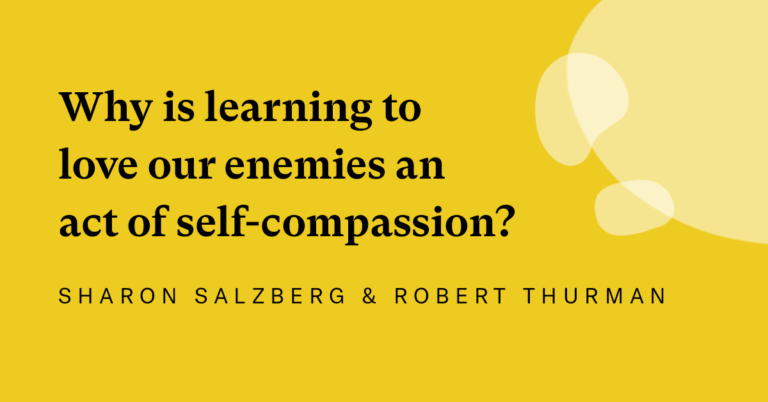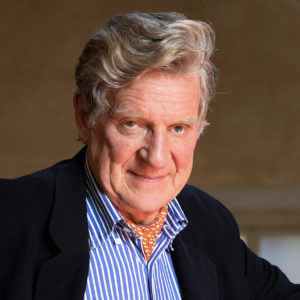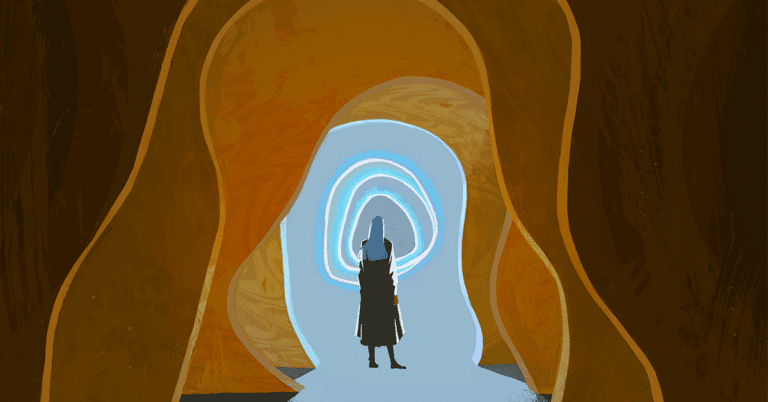Sharon Salzberg and Robert Thurman
Releasing Anger as an Act of Self-Compassion
The last episode of season two. Robert Thurman and Sharon Salzberg are icons of American Buddhism, and they are joyful, longtime friends. They challenge us to reframe our anger by seeing love for our enemies as an act of self-compassion. “It’s very hard to see love as a force, as a power rather than as a weakness, but that is its reality,” Salzberg says.

© All Rights Reserved.
Guests

Sharon Salzberg is one of the original three young Americans who traveled to India in the 1960s and ‘70s and introduced Buddhist meditation into mainstream Western culture. She is a globally renowned meditation teacher and co-founder of the Insight Meditation Society in Barre, Massachusetts. Her books include Real Happiness, Lovingkindness, and most recently, Real Change: Mindfulness To Heal Ourselves and the World.

Robert Thurman is the first American to be ordained a Tibetan Buddhist monk by the Dalai Lama. He is president of Tibet House U.S., and was a professor of Indo-Tibetan Buddhist Studies at Columbia University for 30 years. His many books include Inner Revolution and the book he co-wrote with Sharon Salzberg, Love Your Enemies. In 2021, he published Wisdom Is Bliss: Four Friendly Fun Facts That Can Change Your Life.
Transcript
[music: “Sun Will Set” by Zoë Keating]
Krista Tippett, host: I’ve had hundreds of big conversations, and my conversation partners share wisdom I carry with me wherever I go. Robert Thurman and Sharon Salzberg are icons of American Buddhism, and they are joyful, longtime friends. They challenge us to reframe our anger by seeing love for our enemies as an act of self-compassion.
This is Becoming Wise. I’m Krista Tippett.
Ms. Tippett: Something that I think about a lot is that — I think, say, in Christianity, this is often discussed as the problem of evil or great enemies. And even maybe in our culture, we tend to focus on these dramatic, drama-sized enemies: the bully or the catastrophic danger or the murderer.
But something that I’m aware in real life, day to day — I think so much pain and suffering is caused by — I don’t know what I would even call — maybe the “near outer enemy,” right? Not the villain out there but the people close to us in workplaces or in families or in friendships. People are vulnerable, and it’s those people who have a power, such a destructive power, to do damage in those circumstances. Where do these beautiful teachings start to speak there?
Sharon Salzberg: I think that’s so crucial. I want to say something about that middle place, learning to stop hating, because the word “love” is so loaded, and what does it mean? Our fear, of course, is that it means something very passive and complacent and — “I’m gonna let people hurt me, and I’m gonna let them oppress other people, and I’m gonna be a doormat.” It’s a very nuanced and subtle quality. It’s very hard to see love as a force, as a power rather than as a weakness, but that is its reality.
So that middle place is very compelling, whether it’s a colleague at work who’s sort of annoying, or it’s somebody who disappoints us in the neighborhood or our community, or it’s the villain, even — to have some recognition that the way we can be consumed by hatred — or even just an obsession, that habit we can have of going over someone’s faults again and again and again — it’s the same list, but we’d like to go over it again a few more times. [laughs]
The way we give over so much of our energy to someone else in this kind of negative or destructive way, whether it’s a minor annoyance or a very grave injustice, there’s a way in which we want to be whole. We don’t want to have lost so much of our life’s energy to someone else’s actions or problems. And we want that energy to return to us and for us to be able to go on in a more creative, generative way, and that’s the process. That’s why people engage in this process.
Ms. Tippett: So, what do you mean? Tell me the process. Describe that.
Ms. Salzberg: Well, I think first being aware of how it actually feels to be frightened, to be so angry, to be so consumed with somebody else, to be able to see those states, to be able to have a little more distance or space from those states.
Ms. Tippett: To just gain some self-awareness about the fact that you are going over and over that and letting it consume you in a way?
Ms. Salzberg: Yeah, exactly, and how it feels, because then we want to let go out of the greatest compassion for ourselves, not because we’re trying to be a goody-goody or a certain kind of person or match someone else’s dictum for how we’re supposed to be, but out of the greatest love and compassion for ourselves.
Robert Thurman: There’s a word in Buddhism called “kleshas” — or “klesa” in Pali, “kleshas” in Sanskrit — which comes from a verb root that means “to twist, something to be twisted.” And it’s translated “defilement” or “affliction” by some people. I used to translate it “affliction.”
But the best word for it actually is “addiction.” So anger and obsession, lust, these things are said to be addictions. And that immediately gets the point across. In other words, it’s something that people think is helping them because it gives them a momentary relief from something else. But actually, it’s leading them into a worse and worse place where they’re getting more and more dependent and less and less free.
Ms. Tippett: Dependent because the way you’re handling it is then all entangled with the other person?
Mr. Thurman: Yes, right. And partly because you believe when anger comes to you, meaning in the form of an impulse that you have internally — “This is intolerable; that person did this; this is like something.” It’s the inner thought that comes, and it seems to come in a way that is undeniable. You have to act on it. So in other words, it takes you over. And that’s where mindfulness can interfere with that by being aware of how your mind works and realizing that it’s just one impulse and it’s one voice within you. And there’s another questioning voice and an awareness voice that can say, “Well, actually, would this be a good idea to blow your top now?”
I always like to say it’s like — otherwise you’re like a TV set that has one channel only and no clicker. If you have the horror show rising up from your solar plexus, then you’re going to have a horror show. Whereas, you can click to the nature show. You can watch the minnows frolicking in the lake in the summer. So I’m saying we are very clickable. We’re very switchable in our moods and minds.
And then the key is, the hopeful thing for some people who like their anger — and some people do like their anger. The hopeful thing is that that energy of heat, kind of like a heat — and actually in Buddhist psychology, anger is connected to intelligence, to analytic and critical intelligence. So that energy — a strong, powerful energy of heat, force — can be ridden in a different way and can be used to heal yourself. It can be used to develop inner strength and determination. And that is really something much to be ambitious for. That is a great, great goal.
[music: “Sun Will Set” by Zoë Keating]
Ms. Tippett: Robert Thurman’s latest book is Man of Peace, an illustrated biography of the Dalai Lama. Sharon Salzberg is a meditation teacher and cofounder of the Insight Meditation Society in Barre, Massachusetts. Her most recent book is Real Love: The Art of Mindful Connection. Their book together is Love Your Enemies.
Becoming Wise is produced at On Being Studios, which is located on Dakota land. Our team is Marie Sambilay, Lily Percy, and Chris Heagle. And our theme music is provided and composed by Zoë Keating.
Books & Music
Recommended Reading
The On Being Project is an affiliate partner of Bookshop.org and Amazon.com. Any earnings we receive through these affiliate partnerships go into directly supporting The On Being Project.











